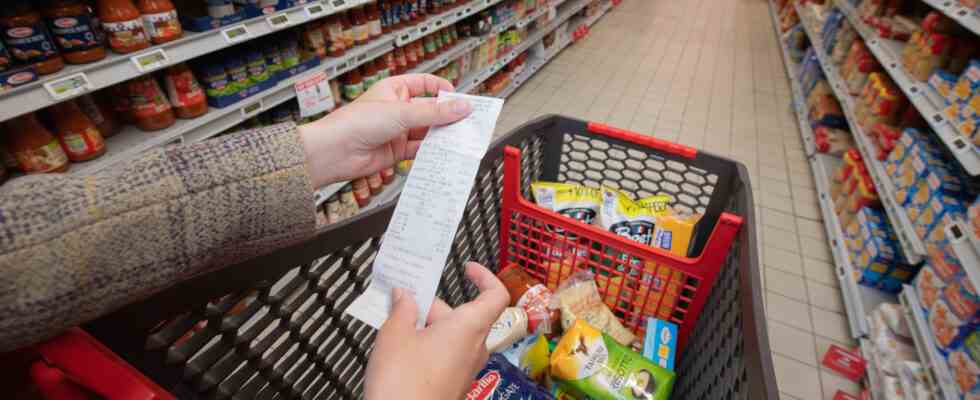Status: 08/31/2022 11:58 a.m
The price increase in the euro currency area climbed to a record high in August. Goods and services rose in price by more than nine percent on average.
Inflation in the euro zone passed the nine percent mark in August. Consumer prices in the 19 countries that use the euro as their currency climbed 9.1 percent over the year. The statistics office Eurostat announced today on the basis of a flash estimate. Since the introduction of the euro as book money in 1999, the rise in prices has never been higher than in August. Experts surveyed by the Reuters news agency had expected an increase to 9.0 percent. In July, the inflation rate was still 8.9 percent.
Core inflation at 4.3 percent
Energy prices rose by 38.3 percent within a year. However, the increase was a little weaker than in the previous month. On the other hand, the rise in prices for food and beverages accelerated. The prices of industrial goods and services also rose more sharply. For groceries, alcohol and tobacco, consumers had to cope with an increase in costs of 10.6 percent. Non-energy industrial goods rose 5.0 percent. For services, inflation was 3.8 percent. Core inflation, which does not take into account prices for energy, food and luxury goods that are particularly susceptible to fluctuations, rose from 4.0 to 4.3 percent.
The three Baltic states again had the highest inflation rates in the currency area at more than 20 percent. For example, the annual inflation rate in Estonia rose to 25.2 percent. In Germany, the inflation rate calculated according to European standards was 8.8 percent.
ECB under pressure
With the renewed surge in inflation, another sharp hike in interest rates by the European Central Bank (ECB) at next week’s meeting is likely to become more and more likely. Because it continues to miss its inflation target of two percent by a wide margin.
In July, after years of zero interest rate policy, the ECB raised it by half a percentage point to 0.50 percent. Another strong step is expected for the ECB Council meeting on September 8th. In the meantime, several euro central bankers have spoken out in favor of discussing an even larger hike of 0.75 percentage points.

